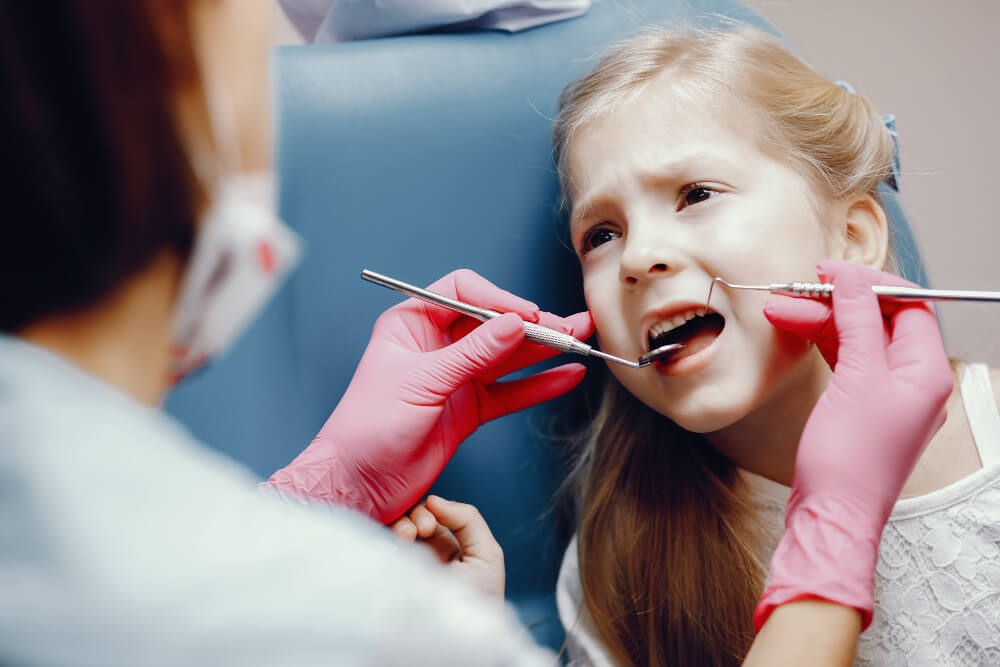
The pulp in the teeth refers to the nerves, tissue, and blood vessels that fill up the root canals and interior cavity in the tooth. It provides blood supply along with nutrients and oxygen to the tooth. Traumatic injury, caries, and other causes can result in pulp exposure, leading to inflammation and pain. Pulp therapy is a procedure used to maintain the health and integrity of the tooth and its supporting tissues.
Pulp therapy is most important for young permanent teeth that still have immature roots as pulp plays a major role in normal dental development. Two common types of pulp therapies include pulpectomy and pulpotomy.
Why is Pulp Therapy recommended?
Pulp therapy is most often recommended to young children who still have immature permanent teeth. Some common reasons why pulp therapy may be recommended to your child include:
- In case of loss of primary tooth / premature extraction of primary tooth, there may be lack of space for the permanent teeth to emerge.
- Arch length may become shortened.
- Leftover teeth may move to fill in the gap.
- Premolar may become impacted and painful.
- Opposing teeth may grow in an undesirable or protruding way.
- The tongue may posture abnormally.
Who can perform Pulp Therapy?
In most cases, general dentists perform pulp therapies. However, in cases where a specialist might be required, you will be referred to an endodontist. The procedure is quick and simple and does not have any side effects.
How is Pulp Therapy conducted?
The best dentist in Gurgaon will first conduct a visual exam and evaluate your X-rays. The location and amount of the damage decide how the pulp therapy will be done. Pulpectomy and pulpotomy are the most common treatments of pulp therapy.
- Pulpotomy – This procedure involves only removing the affected part of the pulp and leaving the healthy part behind. The gap is then filled up using a therapeutic, biocompatible material to help soothe the root and prevent infection. A crown is then placed to cover the affected tooth and minimize the risk of fractures in the future.
- Pulpectomy – This procedure is recommended for severe tooth decay and involves removing the entire tooth pulp. The root canals are then cleaned and packed with biocompatible material. This procedure requires multiple visits to the dentist.
What are the possible complications of Pulp Therapy?
Pulp therapy is a safe procedure and does not pose any serious health risks. However, the choice of pulpotomy vs pulpectomy requires the dentist to do their due diligence and make sure the root is not infected before making the choice.
Conclusion
It is natural to worry about your child undergoing a medical procedure. However, you can be assured that pulp therapies are completely risk-free. Your child will return to their day-to-day activities as soon as the anesthesia wears off. If you are looking for the best dental specialist in Gurgaon to ensure that your child is in safe hands, get in touch with us.
Request an appointment at Apollo Dental Clinic, Gurgaon Call 1800 1020 288 to book an appointment OR click on this link
Endodontics is the branch of dentistry that deals with the physiology, morphology, and pathology of the dental pulp.
Coronal pulpotomy can sometimes be offered to adult patients if they have teeth with irreversible pulpitis.
The procedure takes around 30 minutes from beginning to end. The endodontist will extract the infected pulp and sterilize the region to get rid of the infection.



















































